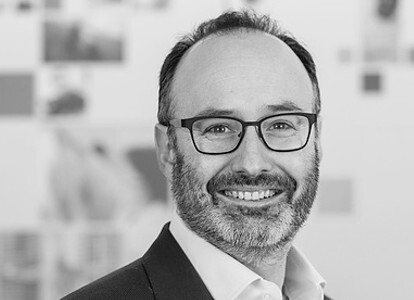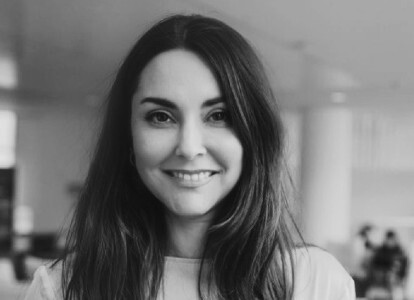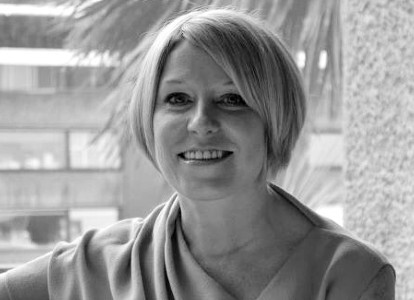
Curiosity is key, says Corporate Affairs and Communications Director Rupert Gowrley, for any comms professional who wants an interesting and challenging career in a large, globally recognised business. Rupert is a former lawyer and public affairs pro who has built an array of great skills by ‘hustling’ and showing people what else he could contribute outside of his ‘professional lane’. A keen gardener and aspiring national park ranger, Rupert’s professional work includes corporate sustainability, advocacy and ESG issues which have perfectly aligned with his interest in the natural world.
1. Can you give us a brief overview of your career so far?
I’ve been very lucky to have had a lot of varied experiences working across many different roles, issues and disciplines. I’ve worked in corporate affairs in different forms for about 20 years. I also spent 3 years as a lawyer at the start of my career and had a couple of stints around UK politics. During my in-house career, I’ve also worked in strategy and M&A teams, and I loved those experiences.
My corporate affairs career breaks down into two halves. The first was largely in government / public affairs consultancies engaging on public policy, legislative and reputation issues across many sectors in the UK, at EU level and internationally. That was a brilliant period for learning about different industries, constructing advocacy campaigns, persuading decision makers, helping organisations to navigate complex stakeholder environments. When I moved in-house I broadened my experience through a series of roles covering issues management, sustainability and ESG, community, digital, internal engagement, change management, financial communications, consumer, and corporate brand. The brilliant thing about Bupa was that, as a complex and growing multinational, I was able to work in a series of leaderships roles in the UK business and then at global group level. After 9 years, I have decided I wanted a new challenge and so I’ve just left and am exploring projects and ideas while doing courses, advising a charity and generally trying to be a more useful parent. I’ve had a few conversations about potential roles so, let’s see.
2. You began your career as a corporate lawyer and political researcher before making the move to communications. What led you to the decision to change careers and how did your legal background help with the transition?
For a long time, I saw the legal experience as something of a career ‘false start’. Being candid, I originally wanted to join the diplomatic service but didn’t get selected. Plan B wasn’t very well- developed and corporate law came to me through the university ‘milk round’ and so I started down that path. I soon realised that I didn’t have passion for what I was doing. That’s so important to me and so I made a jump, worked on a campaign and then got into public affairs consultancy.
I’ve learned to value the legal experience, however. It’s taught me rigour, commerciality and an eye for detail, as well as how to work through complexity and at pace. Law also helped me transition to public/government affairs where I worked on shaping regulation and legislation. It’s also been useful around crisis and issues management when communications and legal teams need to work very closely in a mutually trusting way - and I know some communicators can find that dynamic difficult. I’ve had some brilliant working relationships with in-house legal colleagues.
And, I’ve always been interested in politics, not in terms of ideology but about more about how politics works to implement change in society and the economy – how to get things done. That’s what I find interesting rather than the more dramatic side of it.
3. At Bupa you were responsible for the organisation’s global reputation and corporate communications - a big role. What advice would you give to comms professionals aspiring to a high-profile career in a large, globally recognised business?
Don’t stay in your lane if you want to contribute broadly. What I mean by that is to be open to opportunities that are outside of your professional discipline. That’s one of the best opportunities that in-house roles can give. Odd / interesting /strange projects often come to Corporate Affairs because we’re broad and creative thinkers and problem solvers. I also say to people that sometimes you need to ‘hustle’ a bit. The opportunities won’t always come to you. Sometimes you need to remind people that you can, and want to, do more than what’s in your job description. You have to put your hand up or find a way into interesting projects.
Also, be curious. Curiosity is one of my traits and I recommend that people keep asking questions; never assume that everyone else knows what’s going on or knows more than you. I think communicators are good at getting to the heart of an issue which is simply quite useful in many situations.
Also, take time to really understand how the business works and learn what are the levers in operations, finances, product design, sales, etc. It always saddens me when comms professionals don’t have that curiosity about how the organisation actually works. That can reinforce lazy views about comms people, that we just ’do PR’.
4. You recently spoke at the PR360 event for senior PR leaders about building a Corporate Affairs function that creates real value to an organisation. How did you achieve this at Bupa?
The message I wanted to convey there was about the strength and value to an organisation of a broadly constructed Corporate Affairs function, rather than a narrowly-defined communications team. A strong multi-disciplinary team of super smart and adaptable people able to work in an integrated way across brand, reputation, employee, stakeholders, politics, digital, ESG, customer etc, can be incredibly powerful. Of course, the function has to flex and vary these elements according to the organisational strategy, but my starting point is that it’s a broadly defined function that can create value and opportunities and not just do the traditional ‘promote brand and protect reputation’.
5. What first sparked your interest in sustainability and how does this play a part in both your work life and your personal life?
I’ve always been interested in the natural world since I was a kid. I spent a lot of time growing up watching and photographing wildlife. That wasn’t really part of my working life until sustainability and wider ESG became professional disciplines. At Bupa, I was luckily enough to cover these issues in several jobs including carbon and waste reduction, sustainability strategy, social impact, reporting, engaging with partners and building coalitions.
6. What is the biggest challenge you have faced in your career so far?
There have been plenty of challenging sensitive communications issues to navigate but a perennial challenge (but also an opportunity) is how I’ve managed my career and the need to keep ‘hustling’. A point I made earlier in Q3. Although people might be energised by regularly expanding your experience and trying new areas you can find yourself ‘pigeon-holed’ or stuck. That can happen. Sometimes people or organisations see you as the person who does x or y and they are happy with that. So, you have to keep working on showing people what else you could do. Sometimes you need to be bold and take a leap.
7. What is the most important lesson you have learned when managing people?
Guide, enable, empower but don’t smother. Create a safe space for them to grow within a clear framework and challenge them to do new things and continuously learn and improve. And make sure they get recognition.
8. What or who inspires you, and why?
People who combine vision, passion, high standards with integrity and humanity. I’ve had a few leaders and colleagues who embody those traits and they’re the ones who have inspired me.
9. If you hadn’t ended up working in comms, what was your plan B?
I think I’m quite versatile. I’ve enjoyed working in strategy teams, I have worked on M&A deals. I’ve been part of management teams and general management has appealed. I can see myself still doing several different things. I’m still in my 40s (just) so there may be different routes still to follow.
The more radical Plan B was/is to do something that involves my love of the natural world, like a park ranger. But I mean a national park with big wildlife and landscapes, not telling people to keep off the grass in Hyde Park.
10. Do you have any hidden talents?
So, I can recognise by sound most regular bird species that you are likely to find in the British Isles. That would be quite useful on the park ranger front. Also, my garden gets lots of compliments and so I think I’m not too bad at that.
Thank you, Rupert!
For a free download of our full Annual Salary Guide 2023, click here.
Time for a change? Check out our latest jobs!
The Works Search: a search consultancy specialising in PR and corporate communications. We have unrivalled matching abilities and are known for finding the top 5% performers in the industry - the ones who deliver and make your reputation great. For more advice or market insights, do get in touch with us on 0207 903 9291 or email: sarah@the-works.co.uk.


